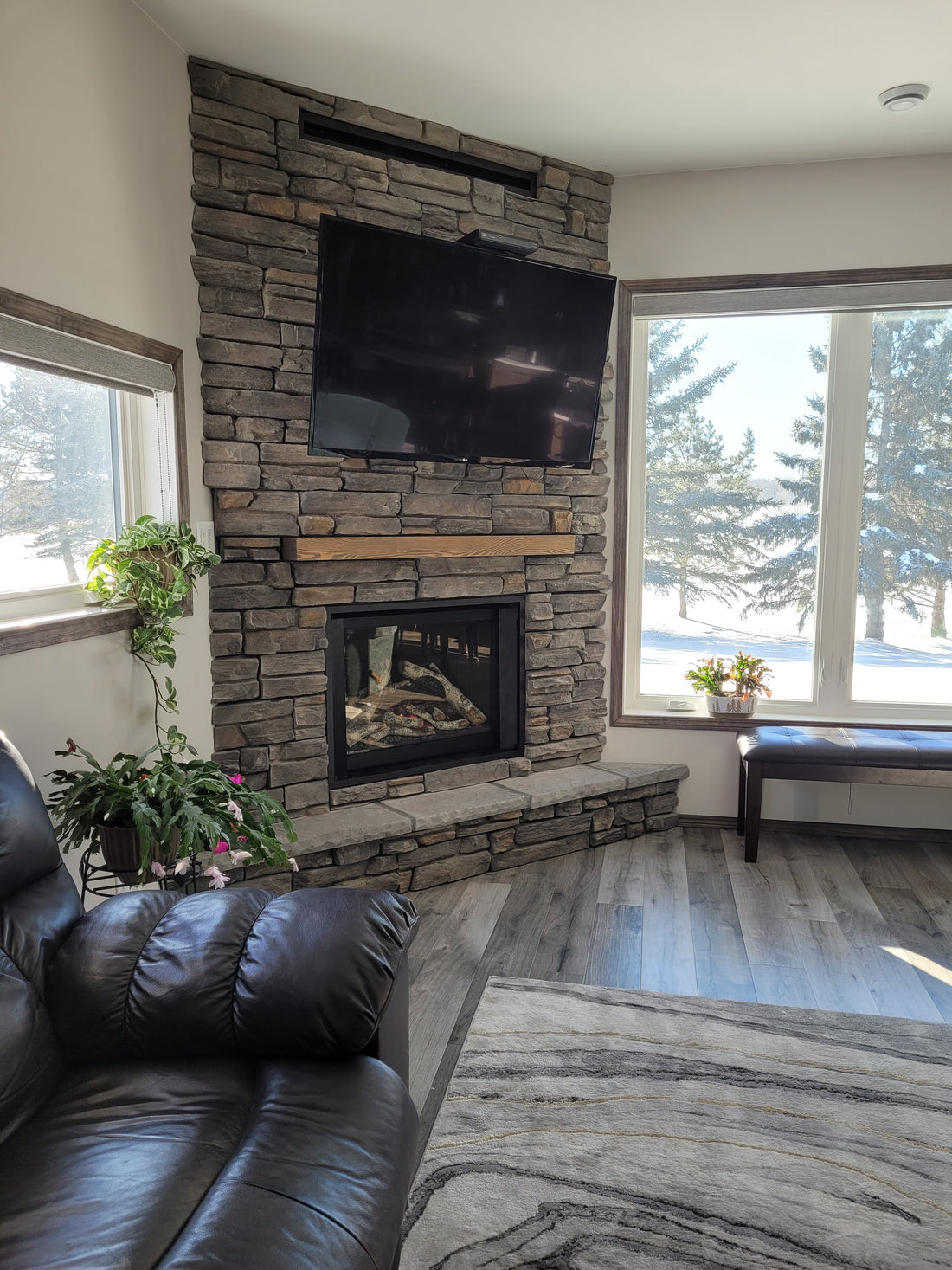
The Different Types of Fireplaces and How to Choose the Right one for you
Share
There are several different types of fireplaces available, each with their own unique features and benefits. Some of the most common types of fireplaces include wood-burning fireplaces, gas fireplaces, electric fireplaces, and pellet stoves.
Wood-burning fireplaces are the most traditional type of fireplace and are great for adding a cozy, rustic feel to a space. These fireplaces require a chimney to vent the smoke and must be properly maintained to ensure safety.
Gas fireplaces, on the other hand, are a more convenient option as they do not require a chimney and can be easily turned on and off with a switch or remote control. They also offer the option of using natural gas or propane, making them a versatile choice.
Electric fireplaces are a popular choice for those who want the ambiance of a fireplace without the hassle of dealing with wood or gas. These fireplaces are easy to install and can be plugged into any standard outlet, making them a convenient option for any room in the house.
Pellet stoves are another popular option and are known for their efficiency and environmentally-friendly design. These stoves burn pellets made of compressed wood or other biofuels and can be easily controlled using a thermostat.
When choosing the right fireplace for your home, it's important to consider the size of the space where it will be installed, as well as your personal preferences and budget. It's also a good idea to consult with a professional to ensure that your chosen fireplace is installed properly and meets all safety standards.
When it comes to choosing a fireplace, there are a few key factors to consider. First, you'll want to think about the size of the space where the fireplace will be installed. This will help you determine the appropriate size and style of fireplace for your home. Next, consider your personal preferences and budget. Do you want a traditional wood-burning fireplace or a more modern, convenient option like a gas or electric fireplace? Finally, be sure to consult with a professional to ensure that your chosen fireplace is installed properly and meets all safety standards.
In addition to these factors, it's also important to consider the fuel source for your fireplace. Wood-burning fireplaces require a supply of wood, which can be expensive and labor-intensive to obtain and store. Gas fireplaces, on the other hand, require a natural gas or propane line, which can be more convenient but may be more expensive to operate. Electric fireplaces, as the name suggests, run on electricity, which can be a cost-effective option depending on your location and energy provider. Pellet stoves, like gas fireplaces, require a fuel source, but the pellets are generally more affordable and easier to store than wood.
Another important consideration is the type of venting required for your fireplace. Wood-burning fireplaces and some gas fireplaces require a chimney to vent the smoke and fumes, while others can be vented through a wall or roof. Electric fireplaces, as well as some gas fireplaces, do not require any venting at all. It's important to consult with a professional to determine the best venting option for your home.
Overall, there are many factors to consider when choosing the right fireplace for your home. By taking the time to research your options and consult with a professional, you can find the perfect fireplace to add warmth and ambiance to your space.
